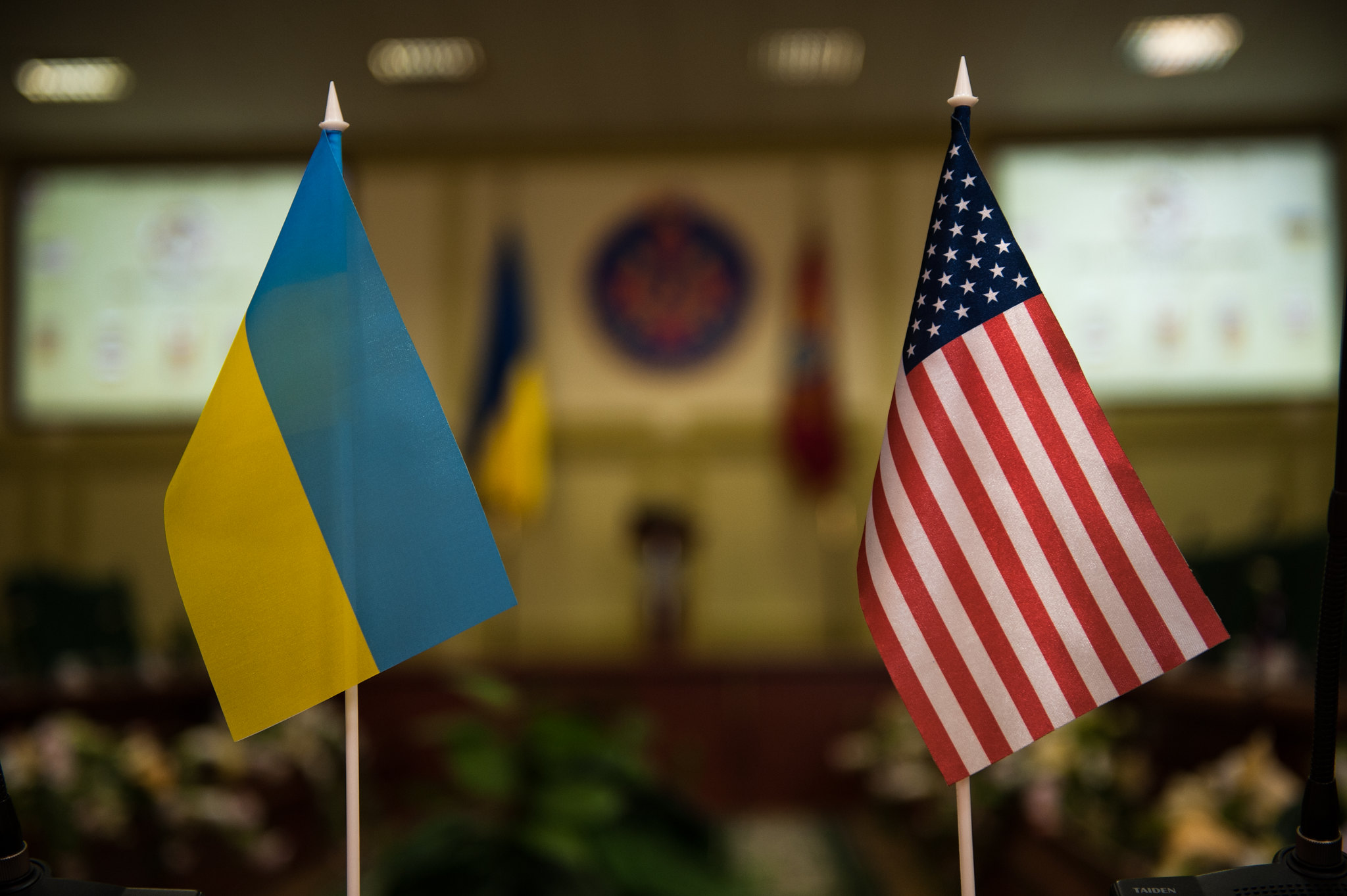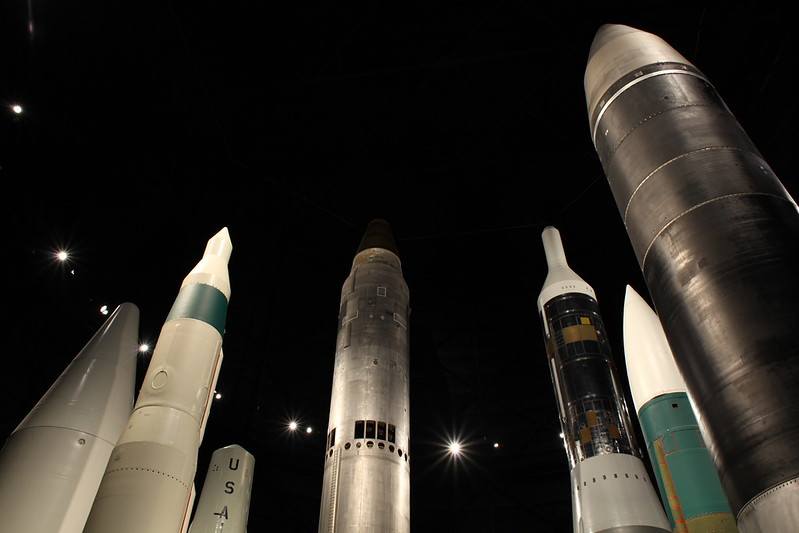Joint Series on International Law and Armed Conflict: Hakimi on Fair Trial Guarantees in Armed Conflict
[I am happy to report that Lawfare once again is partnering with InterCross and EJILTalk! to present posts stemming from a summer roundtable at Oxford concerning international law and armed conflict.
[I am happy to report that Lawfare once again is partnering with InterCross and EJILTalk! to present posts stemming from a summer roundtable at Oxford concerning international law and armed conflict. That roundtable was jointly organized and sponsored by the Oxford Institute for Ethics, Law and Armed Conflict, the Oxford Martin Programme on Human Rights for Future Generations (both directed by Dapo Akande), the Washington DC & London delegations of International Committee of the Red Cross, the Houston College of Law (through the good offices of Geoff Corn), and the Robert S. Strauss Center for International Security and Law at the University of Texas (directed by me, Bobby Chesney). The first post in the series, from Nehal Bhuta, is here. Below, we present the next post, from Michigan Law's Monica Hakimi.]
Fair Trial Guarantees in Armed Conflict
Monica Hakimi is a Professor of Law at the University of Michigan Law School.
The fair trial protections that apply in non-international armed conflicts (NIACs) have received much less attention in recent years than have the protections on targeting and security detention. No doubt, this is because the basic contours of a fair criminal trial are generally not in dispute. Still, they raise a number of interesting questions. Here, I describe the current legal landscape and identify some issues that warrant further study.
A. The Regulatory Framework
The relevant treaty law can be laid out succinctly. The four Geneva Conventions, the two Additional Protocols, and human rights law all require that criminal trials be fair. The specific language and requirements of each instrument vary, but the key parameters are similar. (The relevant provisions are GCI art. 49; GCII, art. 50; GCIII arts. 84, 86, 99, 102–08; GCIV arts. 5, 64, 66–75, 117; common art. 3; API art. 75; APII art. 6; and ICCPR art. 14.) In short, a court must: (1) be independent, (2) be impartial, and (3) afford defendants basic guarantees. A court is independent if it has the ability to conduct its business without undue external interference. It is impartial if its decisions rest on the evidence before it, without any predisposition toward one side or the other.
Common Article 3 does not list specific guarantees for criminal defendants in NIACs; it simply requires that defendants be afforded “all the judicial guarantees which are recognized as indispensable by civilized people.” Other treaty provisions identify what these guarantees might be. The provisions that apply in international conflicts, Additional Protocol II (which governs a subset of NIACs), and human rights law all require: (a) a presumption of innocence, (b) prompt notification of the offenses, (c) charges based on individual responsibility and offenses prescribed in law, (d) means to present a defense, (e) presence at trial, (f) a right against self-incrimination, and (g) notification of remedies. Three other guarantees are listed in the treaty provisions for international conflicts and in human rights law—but not in the provisions that specifically govern NIACs: (h) trial without undue delay, (i) open proceedings, and (j) no double jeopardy.
B. Specific Guarantees in Non-International Conflicts
That regulatory framework raises discrete follow-up questions about the basic guarantees in NIACs—especially, NIACs that are not governed by Additional Protocol II. Which of the above guarantees are “recognized as indispensable” and thus incorporated by reference into Common Article 3? More generally, has the IHL for NIACs completely “caught up with” the IHL for international conflicts, or do some of the treaty-based disparities persist?
The dominant position is that all of the above guarantees must be afforded to defendants in NIACs. One can get at this position in two ways. First, the fair trial guarantees for international conflicts might now be customary IHL, applicable in all armed conflicts. If they are, they fill the interpretive space in or otherwise update the treaty texts for NIACs. The ICRC’s customary IHL study endorses this approach. The study has been criticized for being too loose with the supporting state practice and opinio juris, but even if it is, it will shape expectations on IHL going forward. (See here for an elaboration on this point.) In other words, customary IHL is at least moving toward a position that affords all of the above guarantees to defendants in all armed conflicts.
The second, more controversial method for getting to that result is to use human rights law either to inform or to displace the IHL provisions for NIACs. The wrinkle here is that, under the terms of the ICCPR, the fair trial provisions are derogable during armed conflicts and other public emergencies. But that wrinkle is relatively easy to iron out. The Human Rights Committee has asserted that the fair trial provisions are not derogable. And even if they are derogable, a derogation would have to be “strictly required by the exigencies of the situation” and “not inconsistent with [states’] other obligations under international law.” As a practical matter, satisfying that standard is likely to be difficult. A state would have to show that a conflict necessitates denying defendants the guarantees that are associated with a fair trial, even though IHL requires states to provide those same guarantees in at least some armed conflicts.
Identifying the basic guarantees that must be afforded to defendants does not end the analysis. One might ask, for example, whether some of those guarantees apply differently—require different things—depending on the context. For example, are the same means for presenting a defense required in all situations or may they vary? What about the time period that amounts to undue delay? And to what extent does or should the human rights jurisprudence on fair trials inform how we interpret and apply the guarantees for NIACs? These questions are not new, but they require more attention.
C. Trials by Nonstate Actors
A separate issue is whether trials conducted by nonstate armed groups can ever be fair enough to satisfy IHL. The ICRC answered that question in the affirmative in its 2016 Commentary to Geneva Convention I. It suggested that nonstate armed groups may conduct criminal trials if they: (1) use a state’s existing courts, or (2) constitute their own courts in accordance with their “laws.” This interpretation is animated by the desire to bring nonstate groups into the IHL fold. Criminal trials might be a way for these groups to garner respect for IHL or to maintain order within their own ranks, and it might be the only realistic alternative to summary executions.
The ICRC commentary is unclear about the legal basis—the source of authority—for nonstate groups to establish their own courts. This issue is analogous to one that has received enormous attention, especially after Serdar Mohammed v. Ministry of Defence [2014] EWHC 1369, in the context of security detention. The ICRC has claimed that IHL implicitly authorizes security detention in NIACs. (See para. 728 here.) Many other experts agree. That logic might be extended to criminal trials: IHL might also authorize parties to a conflict to conduct criminal trials. However, the ICRC has not expressly made that claim, and it seems to me to be dubious. Common Article 3 is best read as establishing conditional obligations: if a party to a conflict conducts criminal trials, it must satisfy certain basic guarantees. By this account, Common Article 3 does not address the right or authority to conduct trials. It simply requires that criminal trials be fair and in regularly constituted courts when they are conducted. The question then remains: under what authority would nonstate groups establish their own criminal courts? IHL might have nothing to say about this question, but international lawyers probably should. And unlike for state trials, the authority for nonstate groups is unlikely to be a state’s domestic law and is not self-evidently human rights law.
The larger question is whether trials conducted by nonstate groups can ever really be fair, so as to satisfy IHL’s minimum requirements. One can certainly imagine scenarios in which nonstate groups are scrupulous about establishing their own judicial organs. But most of these groups lack the institutional, human, and financial resources to set up independent and impartial judiciaries, especially during wartime. And there might be reasons to insist that criminal justice is fair only when it is administered through the machinery of a state. At the very least, that issue deserves more attention before IHL experts start condoning the courts of nonstate groups.
D. Relationship to Security Detention
Finally, the fair trial guarantees raise questions about the interplay between criminal and security detention. As a matter of doctrine, these two mechanisms are distinct; in many settings, the parties to a conflict will be entitled to use only one or the other. But they often overlap. A party might have the option of incapacitating someone through the criminal process or with security detention, or it might want to begin with one and then turn to the other. In these latter situations, should we continue to treat the two mechanisms as separate or are there normative or analytic reasons to consider them together?
To make the inquiry more concrete, here are the kinds of questions that we might ask:
- When someone’s conduct justifies both security detention and criminal prosecution, does or should IHL favor one of those mechanisms over the other? (Human rights law clearly favors the criminal process.)
- Should the availability of both mechanisms affect the substantive or procedural requirements that apply in each? For example, one might argue that the fair trial guarantees should be interpreted robustly on the ground that the parties to a conflict may address their immediate security needs through administrative detention. But that argument suggests that the requirements for security detention should not themselves be too cumbersome.
- Does IHL impose any limits on the sequential use of these mechanisms? For example, if a state detains someone for years and then prosecutes him for the same conduct, can it still satisfy the prompt trial requirement—or is promptness assessed from the time of capture?
Again, these questions remain largely unexplored.


.jpg?sfvrsn=407c2736_6)


